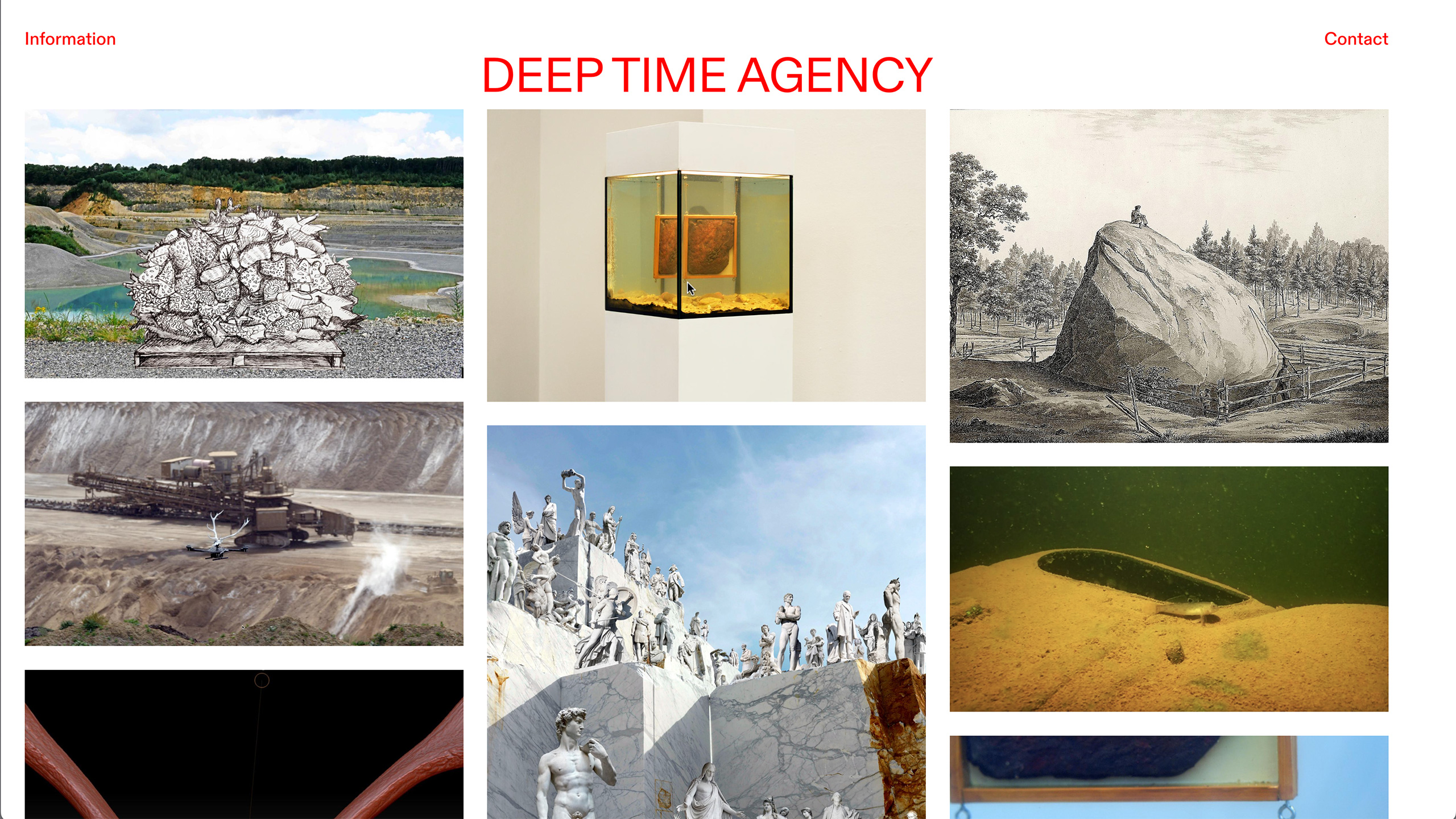Deep Time Agency
In 2020, visual artists Miriam Sentler (1994, DE/NL) and Wouter Osterholt (NL/DE, 1979, NL/DE) set up an interdisciplinary research initiative: Deep Time Agency. DTA is designed as a multi-year research project that recontextualizes archaeological objects in industrially changed landscapes, in collaboration with local residents, stakeholders and institutions. The initiative merges different historical time layers of places to form a material voice for the present and future of the disrupted landscapes, working in an activist and poetic manner with the symbolics of the objects. By highlighting objects exposed by industrial excavations, we seek to develop a sense of belonging in the disrupted landscapes themselves and on a larger scale in the Anthropocene era.
Why? Industrial landscapes are often completely transformed after resources are mined, developing them into new “natural areas”, wherein all traces and scars of the past are erased. This is often based on the desire to ‘return’ the used landscapes, thereby creating new recreational areas. Due to prevailing archiving methods, the archaeological objects found during the industrial process are often placed in national collections, and thus no longer maintain any relationship with the landscape where they were found. Local inhabitants lose their houses, nature and local culture, causing what Bruno Latour coins “groundlessness”. This in turn forms the origins of what ecosopher Glenn Albrecht named “solastalgia”.
How? It is our mission to bring back a form of memory to the “erased” landscapes by temporarily relocating the archaeological objects on their original finding locations. This results in absurd and poetic installations and performances, whereby objects are relocated in the air (Ancestors Rising 2022) or underwater (Descent into the Future 2020). By doing so, we expose the thorough changing of the original landscape and merge different historical layers. In our project, the archaeological objects are seen as New Materialist agents from deep time, whose meanings and symbolism provide important input to contemporary debates about climate change and dealing with post-industrial landscapes.
DTA will consist of several cases, which will highlight a series of changing landscapes and bring them together in an overarching artistic project.
